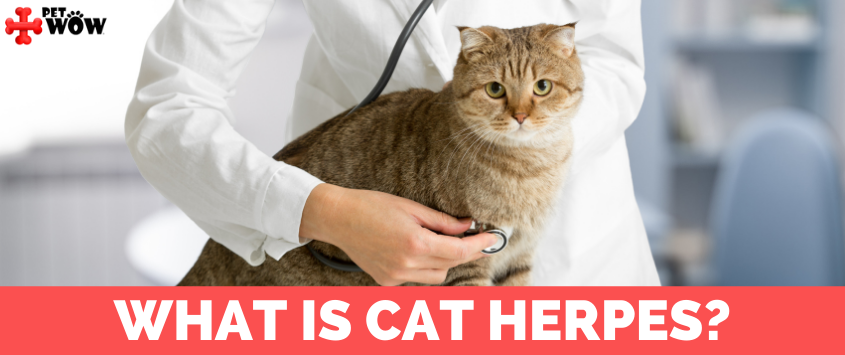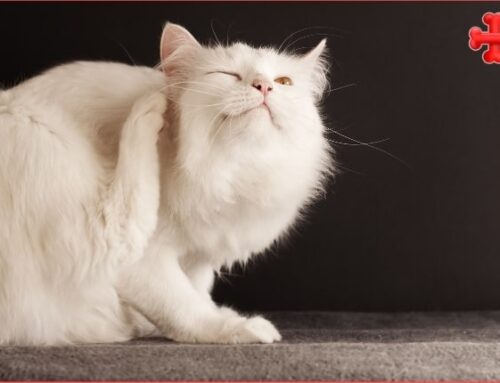Feline herpesvirus, commonly known as cat herpes or more officially, feline viral rhinotracheitis (FVR), is an infectious disease caused by feline herpesvirus type-1. Incredibly contagious to other cats, it affects both wild and domestic cats of all ages.
A significant cause of upper respiratory disease in cats, it is the most common cause of conjunctivitis (inflammation of the tissues surrounding the eye).
Don’t worry about your dog in the same household. He or she cannot catch it. Humans also can’t catch it, but take precautions to wash your hands after coming into contact with secretions so the virus that causes cat herpes doesn’t cause you to get an upper respiratory infection.
How Is Cat Herpes Spread?
Unlike some human herpes viruses that are sexually transmitted, cat herpes isn’t a sexually transmitted disease. Some of the most common ways the virus is transmitted in cats include:
- Direct contact with saliva, nasal or eye secretions
- Breathing in sneeze droplets from an infected cat
- Sharing food bowls or litter boxes
- Living in an environment that has been contaminated (bedding, grooming tools, food and water dishes, furniture or carpeting, etc. The virus isn’t transmissible from these items once they’ve been thoroughly cleaned, or the surface has been dry for about 1 day.)
- Transmission from mother to kittens
Cat Herpes Symptoms
Upper respiratory infections include symptoms such as:
- Eye discharge
- Pink eye
- Sneezing
- Pain or irritation in the throat
- Exhaustion
- Nasal discharge
- Drooling
- Loss of appetite
- Fever
- Coughing
- Keratitis (inflammation of the cornea)
It is important that your cat is treated immediately if you suspect he or she has herpes. It can cause severe damage to the surface of the eyeball (cornea), and can lead to blindness.
What Are Treatment Options For Cat Herpes?
Cats with an uncomplicated infection will usually be treated just for symptoms, but your vet may need to prescribe an eye medication if the infection causes conjunctivitis, or in some cases, antibiotics.
Your vet may also prescribe a supplement with L-lysine, an amino acid, typically in the form of a crystal-like powder that is added on top of their food. Most cats do not even notice the powder and tolerate it very well.
If your cat is dehydrated or has a severe case of illness, your veterinarian may recommend hospitalization for more intensive treatment, including intravenous fluids and other supportive treatments.
If you have questions about feline herpesvirus or if your cat is showing symptoms, please contact us via our website, email [email protected] or call 513-738-9691. More than 20,000 pet parents in Greater Cincinnati and Northern Kentucky have trusted our experienced team for more than 20 years, and we can’t wait to meet you and your cats. For more pet care tips, follow us on Facebook, Twitter, Instagram, Pinterest or LinkedIn!







